Hey girl! This post may contain affiliate links. This means that if you make a purchase through one of them, I will receive a small commission. At no extra cost to you! This helps me to keep my site free and running. I am so incredibly grateful for your support. For more info, check out my Privacy Policy.
Atlanta. To most locals, this extraordinary city is known as America’s Black Mecca: A city where black people come to hope, dream, work, explore, and live their best life. The A has had this reputation since the 70s due to its rich history and breeding grounds for black excellence and advancement. Here is where Booker T. Washington delivered his famous Atlanta Compromise speech. Here is where the largest network of HBCU’s live like Morehouse College and Spelman College. Here is where Martin Luther King Jr. took his first breath and where he was laid to rest.
It’s week two of Black History Month. Last week we talked about some incredible women who have rocked the travel world. And I’m happy to say that this week you’ll need your walking shoes and a pen and notepad ready for this one. This week I’m giving you a guide for a jam-packed 24 hours in Black Atlanta. I’ll take you to some awesome black-owned establishments and fill your cup with some amazing Black History from right here in the city. We have zero time to waste, so let’s get started.
Before we jump into all things Black Atlanta with history, culture, and food there are a few crucial things we should cover first. Atlanta is an awesome city, but if you think you can just show up, jump out of a cab, and proclaim “Atlanta, I have arrived!”You’ve got another thing coming. So first thing is first, here are a few things about this city that people aren’t going to tell you and that you may not find in a guidebook. Oh, and btw, if you finish this post and still have a question or concern that’s wearing you down, leave a comment below and I’ll be sure to respond.

Hey Lady! This post is part of a series. Don’t forget to check out more Black History goodness below:
- 4 Trailblazing Black Women Who Shaped The Travel World
- 5 Less-famous Places to Celebrate Black History
- 4 Black-owned Etsy Stores to Make Your Travels Even Sweeter
Table of Contents
Tip #1: Don’t Call it Hotlanta
Whatever you do, don’t call Atlanta, Hotlanta. Please. Just. No. Nobody in Atlanta calls it that and we actually can’t stand the nickname. This is not the 90s and it is not cool. It’s a sure-fire way to get some dirty looks and some “bless your heart”s. You know it’s bad and makes Atlanta folks shudder and shake their head with disappointment when a local brewing company has to make an entire beer labeled “Don’t call it Hotlanta.”
Tip #2: You’re Gonna Need a Car
Atlanta is spread out and you may, no scratch that: You will need a car. Even if you’re staying within the city perimeter, it’s possible that you’ll need a combination of MARTA* and Uber to get around. However, first, let me say that visiting Atlanta is totally doable without a car and a lot of it depends on the area that you’re staying in.
But even if you do a quick google search, you’ll see that an overwhelming number of people would suggest renting a car while you are visiting. Driving is more time effective, although traffic needs to be taken into consideration. The traffic in Atlanta is no joke. Plus, it will make your trip easier and ultimately more enjoyable, especially if you’re following the guide below.
*MARTA is Atlanta’s public transit system. Regular fares cost $2.50 and transfers are free within 3 hours. There are 8 options for day passes from one day to 30 days.
Tip #3: The Atlanta Airport is Massive
Atlanta Hartsfield-Jackson Airport is the busiest airport in the world and it. is. massive. Kinda hard to believe right? I’m talking 4700 acre, multiple concourses, and a massive air-train. Most Atlanta residents have a love/hate relationship with it. If you’re not prepared for the chaos that is the Atlanta airport, it may just catch you off guard. You can take public transportation (MARTA*) to and from the airport. The station is inside the domestic terminal and you can take either the red or gold line. Click here to learn more about MARTA’s train stations and schedules.
*Note: If you’re taking uber there is a 3.85 surcharge added to the fair for pickups (but not for drop-offs). The price will vary depending on your location within the city, time of day, and demand. However, most rides should cost between $20 and $35.
Alright, so now that the housekeeping is out the way, it’s time to move on to the Black History celebration in Black Atlanta!
1. Morning Coffee or Tea at Gilly Brew Bar in Stone Mountain
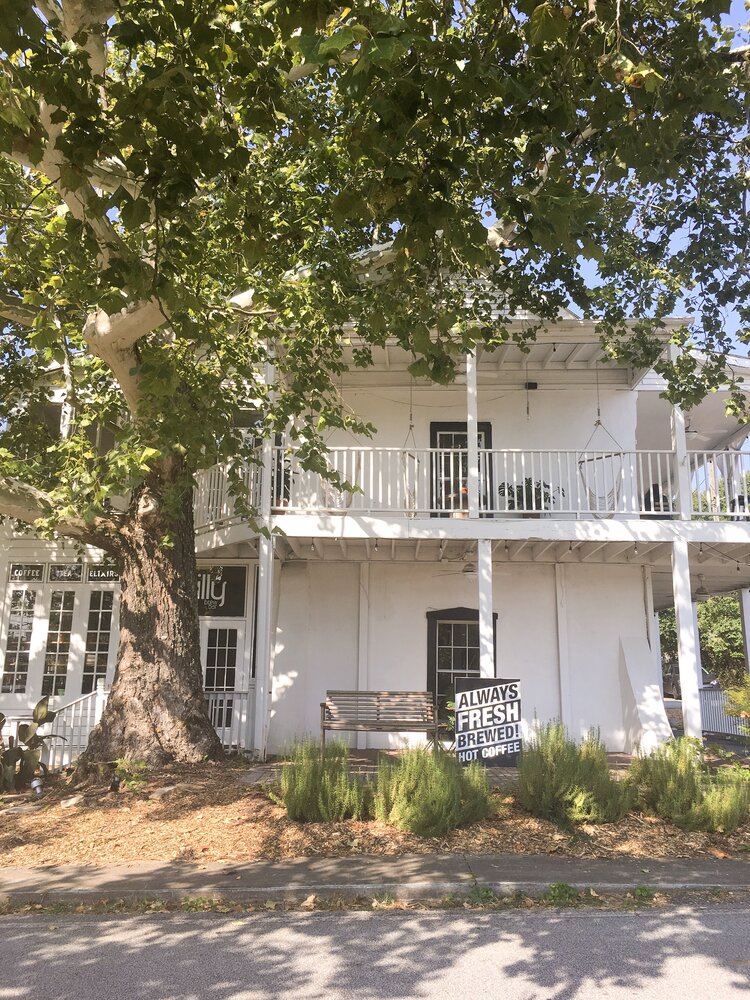
Today is gonna be a long day—awesome, but long, so you’re gonna need some caffeine-induced energy for this one and I know just the place. The first stop in our day in Black Atlanta is Gilly Brew Bar is owned by husband and wife team Daniel and Shellane Brown and is one of my personal favorite spots for a little me time to work and create. This little gem is only feet away from Stone Mountain Park and sets up shop in the historic Mayor’s House.
The beautiful thing about this space is that its part of The Brown’s larger project called The Mayor’s House project which has plans to expand into more businesses as a mixed-use space under the umbrella. Their coffee is no joke and neither are their homemade elixirs that are beautifully infused with fresh herbs. This is one thing that has set Gilly apart from other coffee shops. There’s even a marketspace upstairs where you can buy products from local Atlanta vendors.
Additionally, Stone Mountain Park and Village have deep, historical links to white supremacy. The community is hard at work to contend with this history and move it forward. The Mayor’s House was built in the 1800s by slaves and is now owned by a young, black couple. Now that’s the progression that I can get behind.
Psst. Gilly Brew Bar now have a new location right in the heart of Atlanta on Peters Street! Don’t forget to check it out!
2. Breakfast at Le Petite Marche in Kirkwood
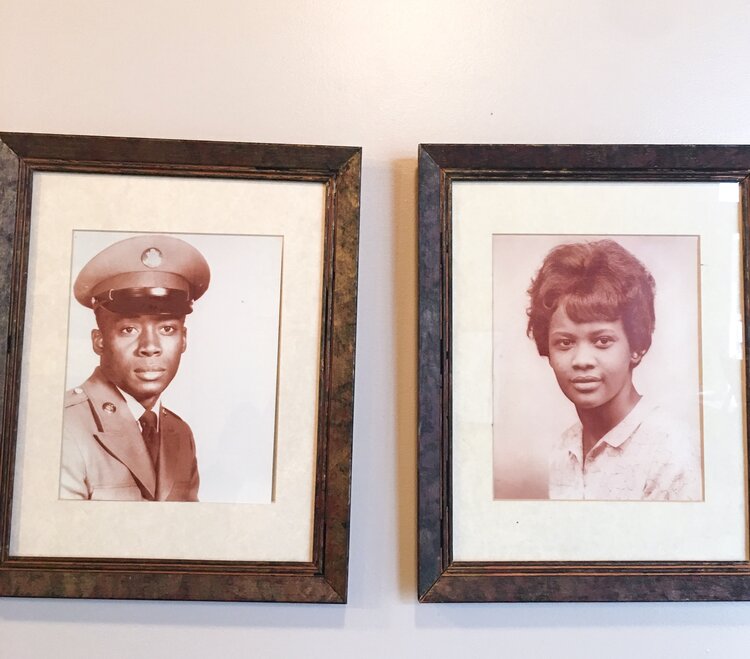
Now that you’re caffeinated up, let’s get you fed in one of Atlanta’s historic neighborhoods: Kirkwood. In French, Le Petite Marché means The Little Market and this restaurant started as just that. Established in 2008, owner Marchet Sparks started as a little market selling specialty cheeses and bread.
Marchet is open with her story and the journey she took to keep the business alive. That journey includes almost losing everything when the economy plummeted and she only had 100 something dollars in her bank account. But once you enter this set foot into this adorable spot in Black Atlanta, it would seem as if those struggling days are long gone. Not only is her business flourishing, but it is adored by the city.
They serve breakfast all day and you can even create your own custom-built sandwich with fresh ingredients. It’s a bit of a family affair as her homemade soups are her mother’s recipes. Her grandmother was illiterate but worked as a cook and handed down her recipes to her mother, who then handed them to Marchet, who now share them with the whole city.
3. Walk through the Life of Martin Luther King Jr. in Sweet Auburn
The next part of our Black Atlanta adventure is celebrating the life of one of the most influential leaders in American History. The Martin Luther King Jr. National Historical Park and The King Center are spread out over 38 acres and consist of several notable buildings. They all played significant roles in King’s early life and career and here is where you can see where he lived, worked, and worshiped. King rose up as a grand leader for the Civil Rights Movement after inadvertently becoming the president of the newly-formed Montgomery Improvement Association in 1955.
From there, he forged his legacy alongside several other prominent men and women. Start at the Visitor Center to get a brief orientation. The D.R.E.A.M Gallery is always filled with new exhibitions and change periodically. His birth home has been restored and you can explore it and see it the way it would have looked during his childhood. However, be sure to register for a tour at the Visitor Center as they are only given once a week. See Ebenezer Baptist Church (still a fully functioning church) where King gave powerful sermons and co-pastored with his father.
The King Center is where you can pause and see MLK and Coretta Scott King’s tombs. The Walk of Fame is dedicated to celebrating and honoring other Civil Rights leaders who fought the arduous fight for freedom and equality.
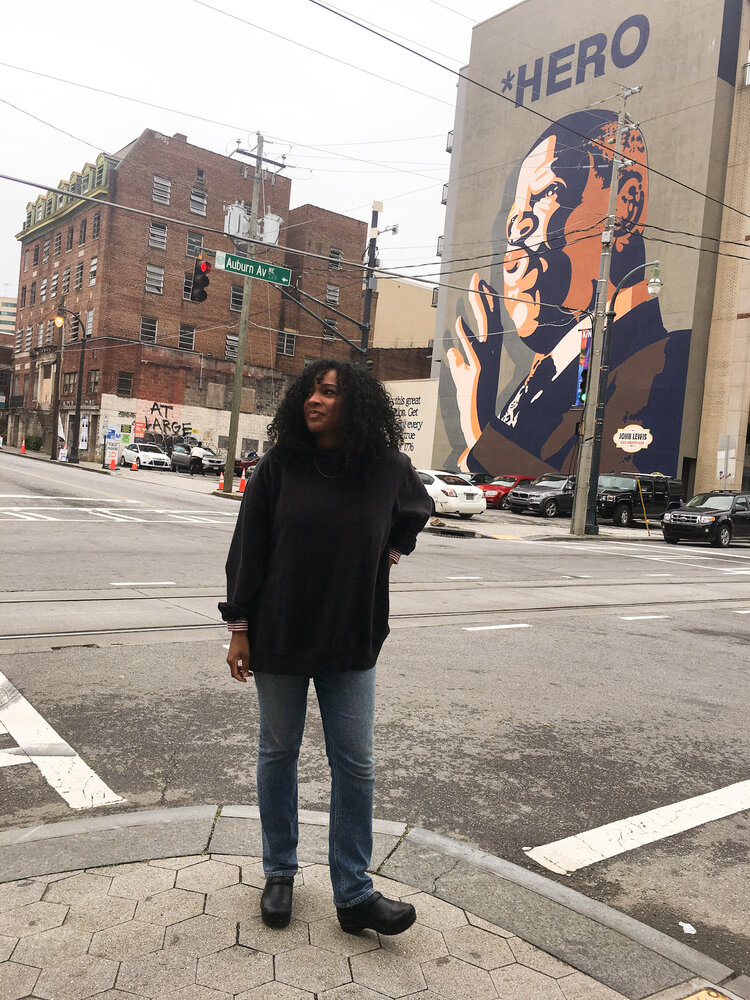
Martin Luther King Historic District Walking Tour
Ya girl here is easily distracted and if you are anything like me or are looking to dig in even deeper, I would highly recommend this tour. It’s a two and a half hour journey through the life of Dr. King and The Civil Rights Movement. It includes the Freedom Hall at the King Center, Ebenezer Baptist Church, views at Atlanta’s Jackson Street Bridge, and more. This tour will also give you an in-depth knowledge of the role Atlanta and the community played in history.

4. Roam Through Rare Books at For Keeps Bookstore Downtown
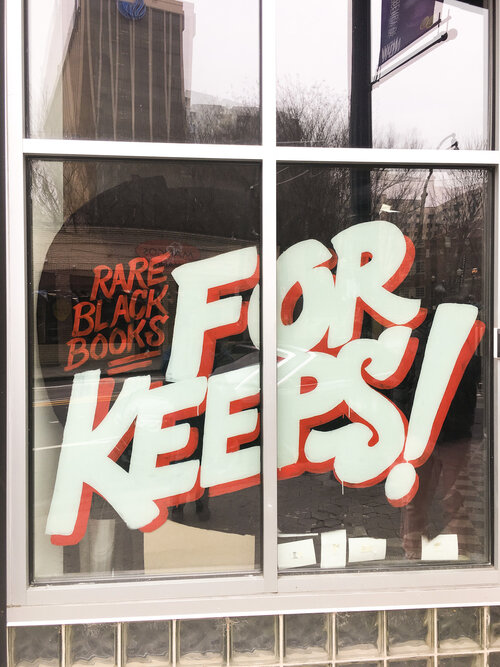
The Sweet Auburn district in Atlanta is a historic Black Atlanta neighborhood. Political leader John Wesley Dobbs named it this in the 50s and 60s. Back then it was bursting with black-owned businesses and establishments. It’s dripping with oooey gooey history and is now a National Historic Landmark.
Just down the street from The King Center and the Apex Museum on Auburn Avenue, a very important street btw, you’ll find For Keeps Bookstore. Owner Rosa Duffy has curated this space from floor to ceiling. It’s filled with rare and used books—and might I add, she’s done an exquisite job.
Her father was an English major at Morehouse and she would often borrow his books and this is where she got her deep love for black literature. Duffy has searched all over to bring us her amazing collection, from dollar bins to small publishers. She put her resources to good work by creating a space where black literature is accessible and inviting.
This is THE spot if you are the least bit interested in African American literature. There are also rare collectibles that you can check out on display but are not for sale. Her hope is that you’ll come in and stay a bit, which I’m sure you will do that and more.
Pro Tip: The Auburn Research Library is down the street. Dedicated to African American study of culture and history.
5. Lunch at Sweet Auburn Curb Market
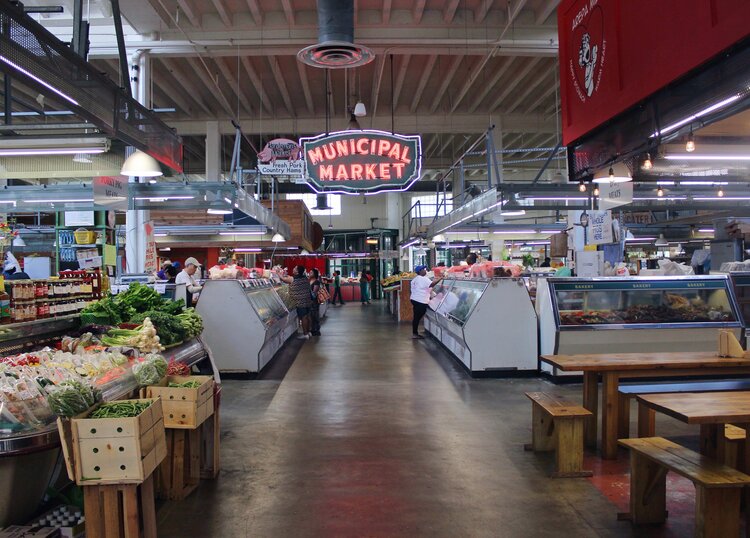
You’ll often hear those with a long family history in Black Atlanta tell stories of the Sweet Auburn Curb Market. Generations have frequented this home away from home since the 40s and it’s the only public market in the city. This is where families would shop for fresh produce and get things they couldn’t find elsewhere in the city. The market originated as part of a revitalization effort in 1918 after the Great Atlanta Fire cleared almost 200 acres. The Women’s Club of Atlanta then raised funds to find a fire-proof, permanent space for the market. That building is the one you see today and it opened in 1924.
During segregation, black farmers and merchants were only allowed to sell from stalls on the curb. Blacks were allowed to shop inside, but only whites were permitted to sell within the market. Nowadays it’s filled with international cuisines and plenty of produce, meat, and seafood vendors. You can grab a quick bite or sit down and enjoy a full meal.
Here are some great options at Sweet Auburn Curb Market that just may tickle your fancy:
- Miss D’s Pralines
- Metro Deli Soul Food
- Afrodish Restaurant
- Just Add Honey Tea Company
6. Walk along the Freedom Park Trail
Aright, by now you’ve read until your heart’s content and have gotten some yummy food in your belly. It’s time to walk it off. The Freedom Park Trail is 17 miles of green space and bliss that runs from downtown to Stone Mountain (as it becomes the PATH Stone Mountain Trail). Along the trail features an art project that honors the women of The Civil Rights Movement by mixed-media artist Lynn Marshall Linnemeier. The project uses murals and silhouettes to acclaim the likes of civil rights activists like June Johnson, Dorothy Cotton, and more.
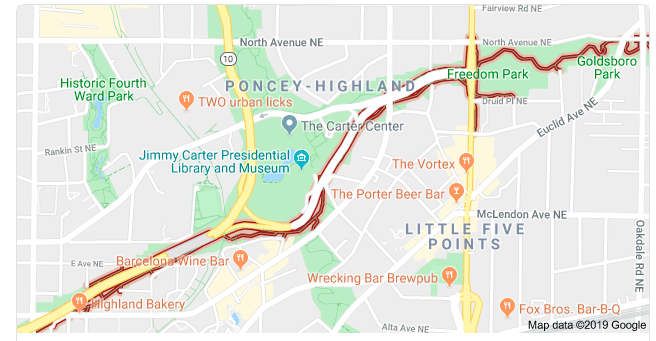
Looking For More?
Pro Tip: Crossing the Freedom Park Train is The Atlanta Beltine. It’s a 22-mile trail of unused railroad tracks turned park and walkways. You can walk, run, and bike the trail and there are tons of restaurants to stop and have a drink. There’s a beautiful temporary outdoor photo exhibition sprinkled throughout 4 miles of Eastside and Westside trail.
The exhibition “Atlanta and the Civil Rights Movement, 1944-1968” is from historian Karcheik Sims-Alvarado and includes 60 images based on her book “Images of America: Atlanta and the Civil Rights Movement, 1944-1968.” You can read stories and see images of people like MLK and W.E.B. DuBois and Georgia natives like Roslyn Pope. The exhibition was set to end in June 2019 however, it has been extended.
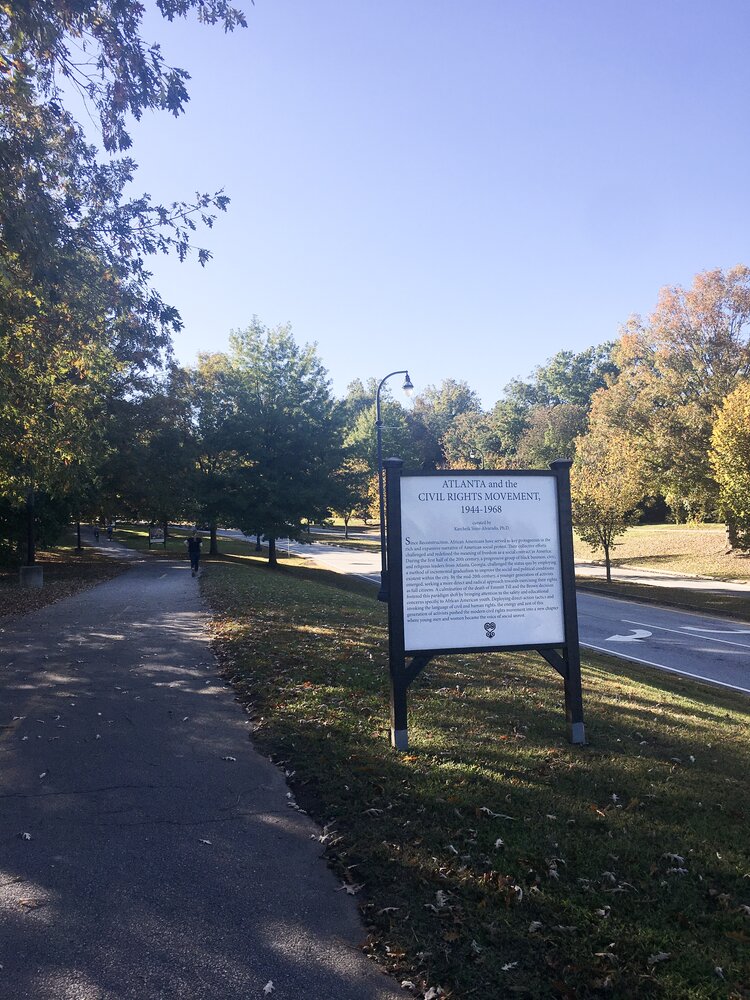
7. Early Dinner at Busy Bee Cafe in the West End
Ever wonder where Civil Rights leaders in Black Atlanta would grab a bite to eat and have meetings to strategize and get the lowdown on the movement? Those times of wondering are over. After walking up an appetite on the Freedom Park Trail, head over to Busy Bee Cafe for an early dinner. This cherished restaurant started serving up scrumptious soul food since 1947. As a result, it’s been the meeting place for Civil Rights leaders, politicians, musical artists, and Atlanta movers and shakers for decades. You’ll be in good company.
The original owner Lucy Jackson was a self-taught cook and was strict about her recipes and preparation of her food. She took the utmost care to make sure things were seasonal and guests felt valued from the moment they step past the doors. Tracy Gates now owns it and embraces the challenge of keeping the torch alive with pride. She’s careful about the effects of seasonal changes on produce and they make everything from scratch, including their extracts, to avoid using toxic preservatives. The cooks there are no joke, to be a cook there takes at least three years, talking about reliability and consistency y’all. Come get some scrumptious should food with all the fixings like collard greens, cornbread dressing, mac n cheese, and more.

8. Theater Show at Kenny Leon’s True Color Theatre Company
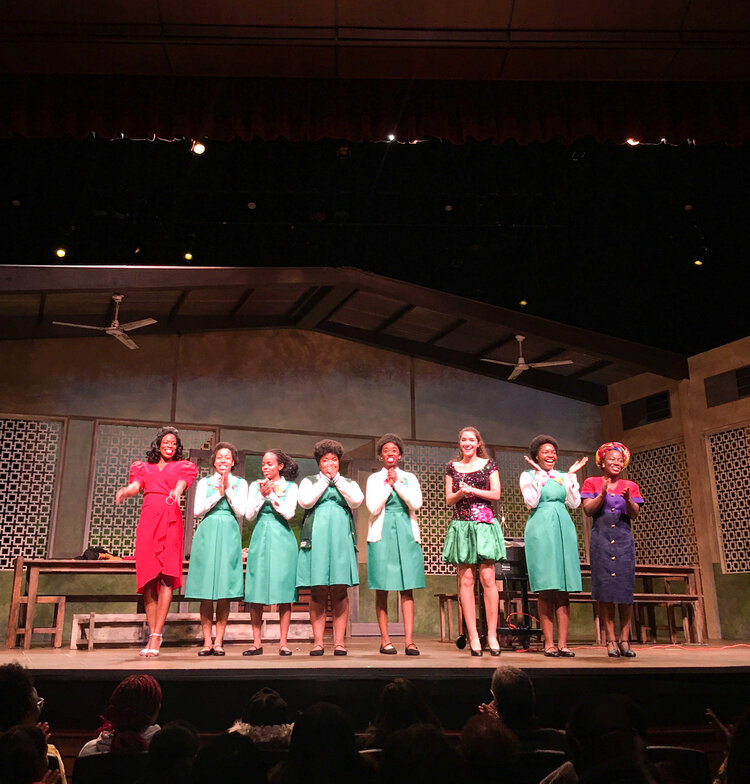
Still with me? Told ya it was gonna be a jam-packed day. Now it’s time to sit back and relax cause we’re heading to the Kenny Leon’s True Colors Theater Company. Hold up. Who is Kenny Leon? Oh no one, he’s just an award-winning Broadway and film director, no biggie. He’s a graduate of Clark Atlanta University and let’s just say ol dude has a looooong list of credentials. He won the Tony Award for directing A Raisin in the Sun on Broadway and he was the artistic director of Atlanta’s Alliance Theater Company for many years.
Have you seen the Netflix adaptation of the play American Son? He adapted it. In 2002 he brought a new type of theater to Atlanta with Jane Bishop (RIP) and opened True Colors Theatre Company. It’s the largest African American theater in the Southeast and it seeks to tell Black stories. He’s since turned over his theater to Jamil Jude and the theater is still striving.
9. Late Night Yummies at Sublime Doughnuts
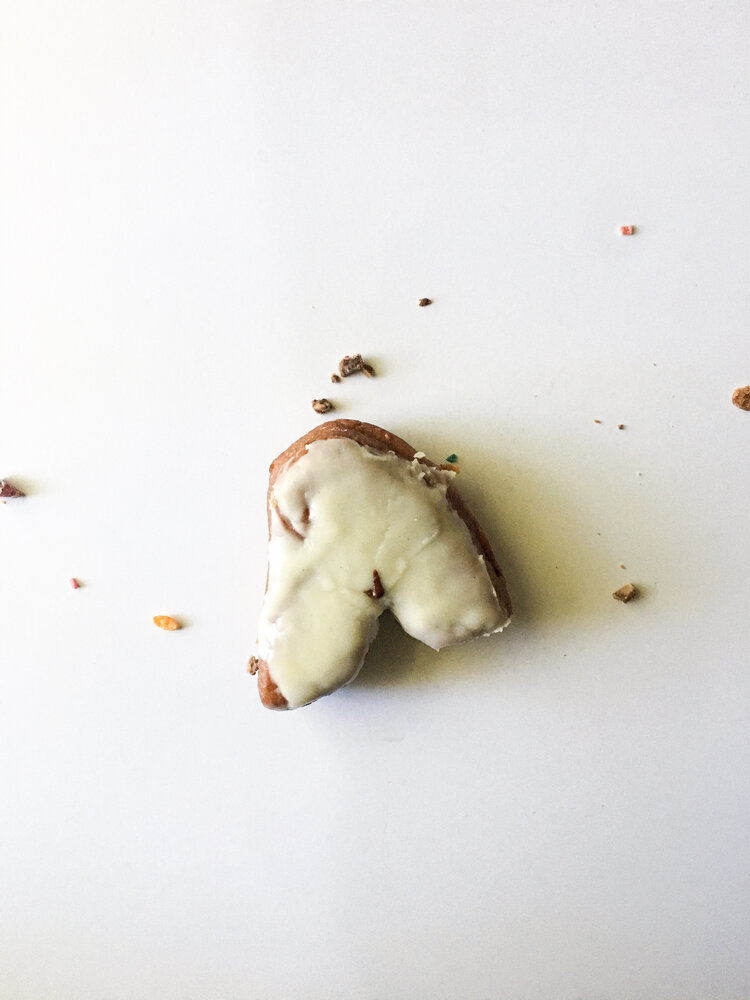
Alright, it’s almost time for this Black Atlanta gravy train to come to an end but our last and final stop is where Atlanta’s fluffy, soft, melt-in-your-mouth donuts live. If you’re on a diet, you may hate me after this. Kamal Grant started Sublime Donuts. He was a baker in the Navy who after his service attended the Institute of Baking and the Culinary Institute of America. I’ve heard that this institute is like the Harvard of culinary schools, so uh, homeboy makes some killer donuts okay?
His donuts have been inspired by his travels. For example, The Donut Ice Cream Sandwich was inspired by a corn ice cream sandwich with rainbow bread he had in Singapore. When he started Sublime he and his mother were the bakers, the dishwashers, the cashiers, the phone operators, and the PR reps. He even went so far as to dress up in a donut costume and wave to cars in the street. Eventually, he grew a following and the rest is history. They’ve got a variety of delicious flavors and…they’re open 24/7. Enough said. Now go eat yourself into a donut coma. You’re welcome.
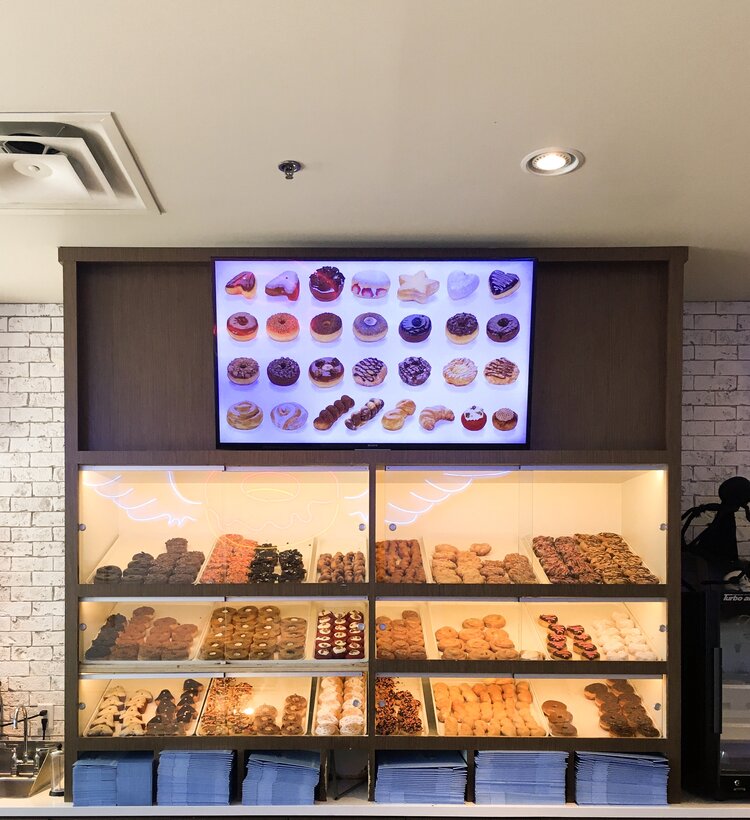
Drop a comment below and let me know your favorite part of this day in Black Atlanta! Stay tuned for more posts in celebration of Black History Month! Until next time!

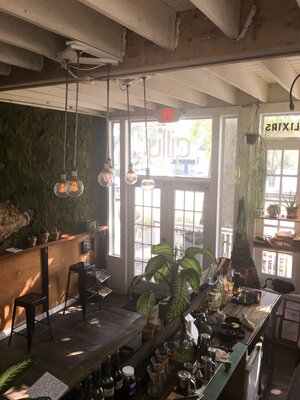
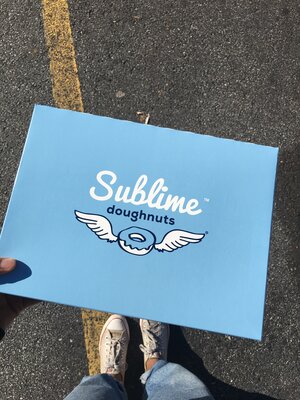
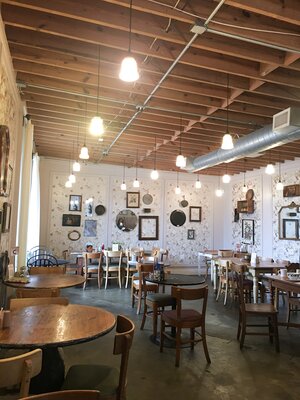
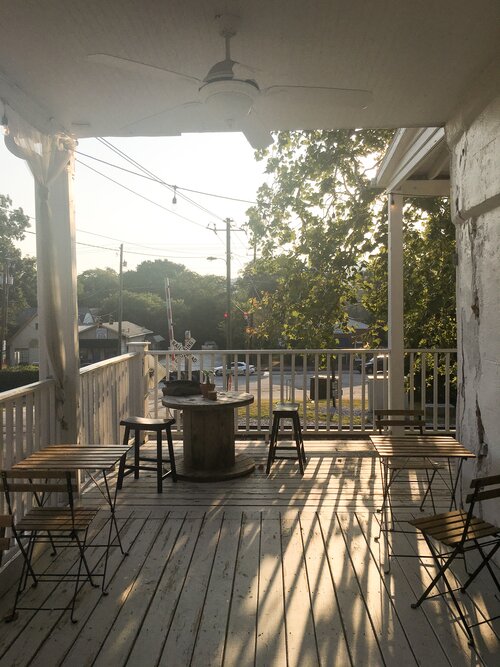
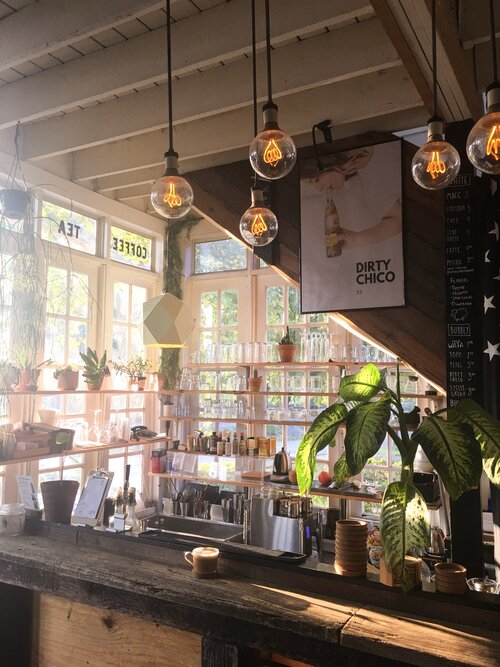
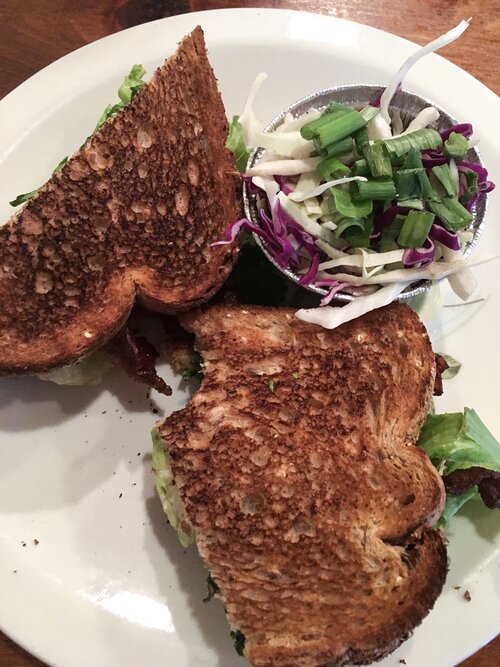
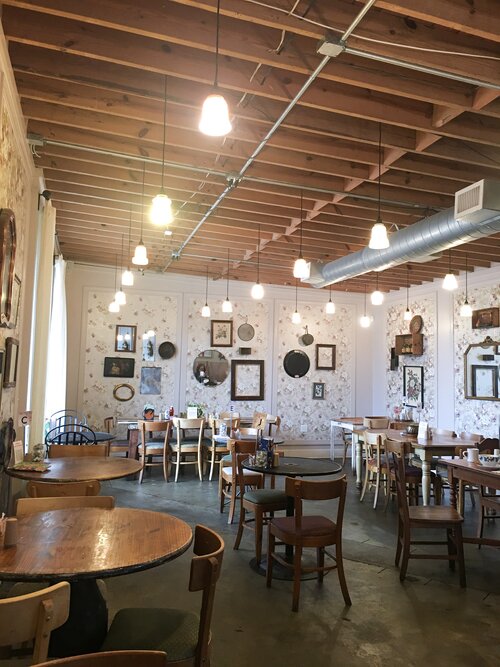
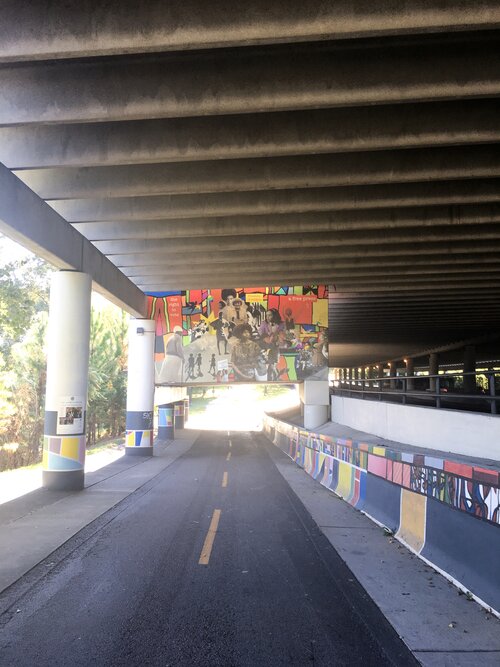
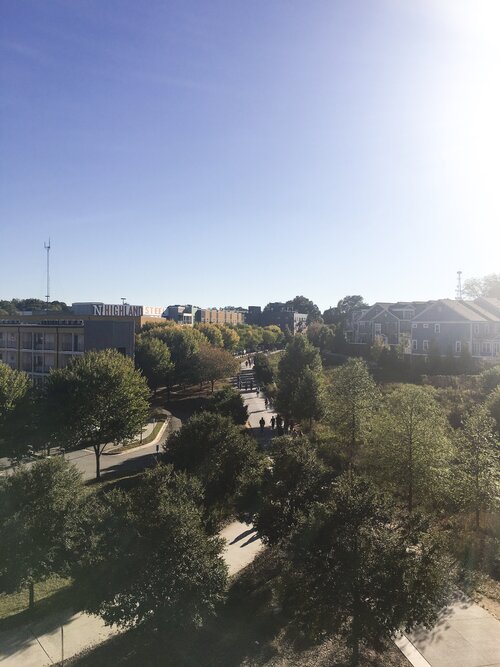
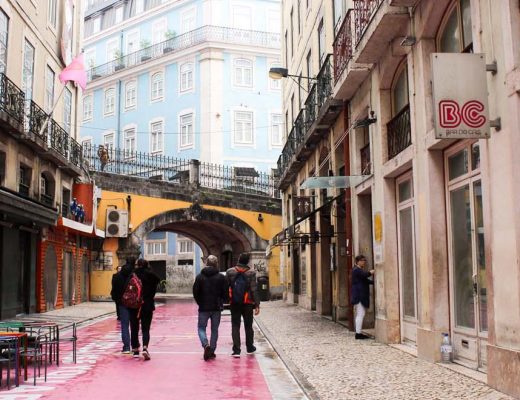
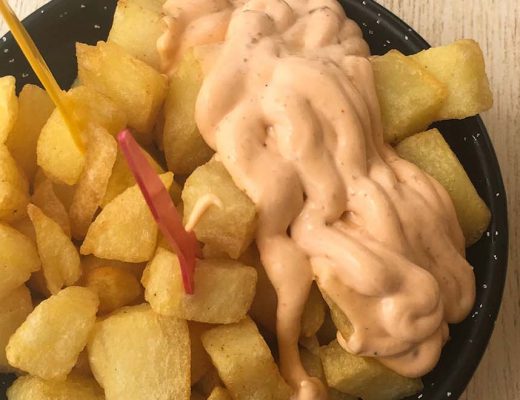
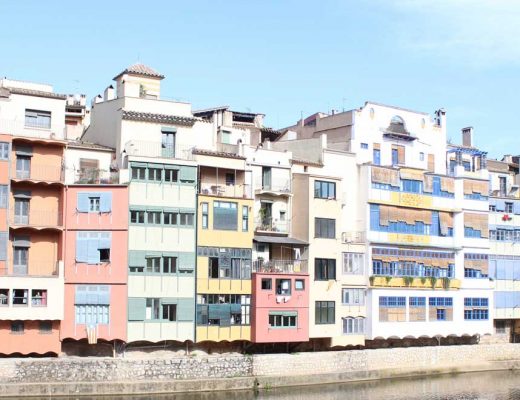
No Comments